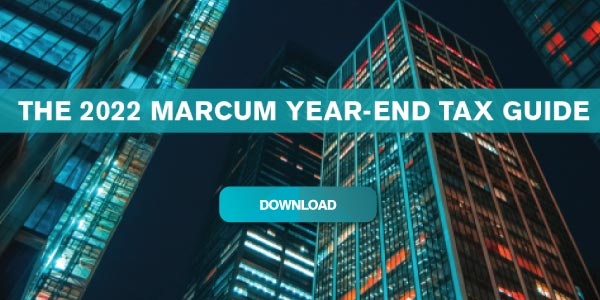Form 1099-K in the Gig Economy
For most individual taxpayers, the American Rescue Plan Act (the Act) passed by the Biden Administration on March 11, 2021, was synonymous with another round of stimulus payments, advanced childcare tax credits, and enhanced earned income tax credits.
A less-known provision of the Act was the one changing the reporting requirements for the even lesser-known Form 1099-K – Payment Card and Third-Party Network transaction.
Background
Prior to passage of the Act, Form 1099-K was required to be filed with the Internal Revenue Service (IRS) by a payment settlement entity (PSE), to report certain payment transactions for each calendar year. In the instructions to Form 1099-K, the IRS defines a PSE as a domestic or foreign entity that is a merchant- acquiring entity; that is, a bank or other organization that has the contractual obligation to make payment to participating payees in the settlement of payment card transactions. The IRS enacted this measure to combat sales underreporting by businesses.
For example, under the old provisions, a busy medical office that accepted credit card payments of $20,000 in aggregate in the ordinary course of business would be issued a 1099-K form by their credit card settlement company, also known as a Third-Party Settlement Organization (TPSO), at the end of the year.
The TPSO would be subject to the reporting requirement if both of the following conditions were met:
- The gross amount of total reportable payments transactions exceeded $20,000, and
- The total number of such transactions exceeded 200.

American Rescue Plan Change
Beginning January 1, 2022, the Act changed the reportable threshold amount to only $600 in aggregate and eliminated the second threshold of 200 transactions.
Under this new set of reporting requirements, if, for instance, a farmer attended a two-day fair where they sold produce in excess of $600 and accepted credit card payments via portable credit card processors, come February 2023, the farmer could expect to receive a Form 1099-K from the credit card processing company for the total amount received at the fair.
This example illustrates how the low reporting threshold has a much wider reach, as it impacts a broad category of participants in the gig/share/on-demand economy. The pandemic proved to be a catalyst for anyone with a solid internet connection and a Venmo account can monetize their talents/assets/time. This gave rise to a whole new group of taxpayers subject to 1099-K reporting.
Even traditional cash-based jobs (i.e., cleaning services, babysitting, temporary room rental) can now be subject to 1099-K reporting if payments received by such service providers were in excess of $600 and made through third-party payment processors such as PayPal, Etsy, Venmo, Cash App, and Stripe, to name just a few.
Whereas receiving income from sales and services has always constituted a reportable tax event regardless of the payment form or amount, there is now a more formalized framework for the IRS to identify those individuals and businesses that under-report their income.
Compliance
If you receive a Form 1099-K in the mail, be sure to retain it with your other tax records. Similar to other 1099 forms, the IRS will receive a copy and compare the information reported on the payor’s (also referred as payment processor) return to the information reported by the payee on their tax return. The IRS will investigate any discrepancies and issue under-reporting notices to taxpayers as needed.
According to a survey conducted by the Coalition for 1099-K Fairness, the new reporting requirement will impact 86% of sellers who made less than $5,000. 47% of the sellers surveyed said they were unaware of the reporting requirement. The organization estimates that in most of these cases, taxpayers will be burdened with filing a Schedule C for transactions that would not have otherwise resulted in a tax liability.
Payments made as reimbursements among family/friends that do not constitute income but are still subject to reporting under the new requirement add a new layer of complexity. If someone buys season tickets for their favorite football team and friends reimburse them for their share of the cost, would this trigger the issuance of a 1099-K? Would the IRS construe the payments as income rather than simple reimbursement?
Fortunately, the answer is no. Apps such as Venmo and PayPal have added new fields/tags that allow participants in a transaction to identify the purpose of the payment, i.e., gift vs. payment for an invoice.
Payment apps are sounding the alarm on the increased compliance burden associated with additional record-keeping measures, reconfiguration of the customer interface, collection and safeguarding of a great number of taxpayer identification numbers (the vast majority of which will likely be Social Security numbers), to name just a few.
A myriad of tax issues will arise from the new reporting requirement, especially as not all sales are created equal. Factors such as intent behind purchase, holding period, and whether the transaction results in a gain or loss are part of the analysis in determining the correct tax reporting.
Consult your Marcum tax professional with questions about whether you may be impacted by the new 1099-K filing requirement and to develop a tax compliance strategy.





















